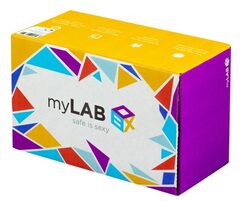Hepatitis B Infection

Hepatitis B Symptoms, Testing and Treatment
By Dr. Edmiston
Hepatitis B is a kind of viral infection that attacks the liver and can lead to life-long disability, cancer, or even death. It is transmitted through contact with blood or other body fluids that contain the virus. A vaccine against Hepatitis B has been available since 1982 and is 95% effective at preventing infection.
Hepatitis B Symptoms
Most people do not know they have Hepatitis B until the infection is quite advanced. During the early phases, Hepatitis B generally does not cause symptoms.
In the rare cases that it does cause symptoms, they are generally similar to those of the flu and may include:
- yellowing of the skin
- dark urine
- nausea,
- extreme fatigue
Chronic Hepatitis B infection can lead to severe liver damage and cirrhosis. This can cause;
- yellowing of the skin and eyes
- pain, nausea, bloating,
- problems with blood clotting, and more.
Not Your Symptoms Click Here >>
Hepatitis B Transmission
Unlike many STDs, Hepatitis B can live outside the body for extended periods. In fact, it can live for at least 7 days without a human host. This means that objects harboring the virus can still cause infection for a week or more after being contaminated.
Hepatitis B is most commonly spread from mother to child during birth but can also be spread through sex, saliva, blood, needles (e.g. tattoo needles), razor blades, and during medical and dental procedures.
Testing
Note: You can avoid Health Problems if your STI is Detected & Treated.
Hepatitis B Diagnosis
Hepatitis B can only be diagnosed with blood tests that look for certain antibodies against the virus. These tests can differentiate between acute and chronic Hepatitis B infection. Hepatitis B cannot be diagnosed by clinical exam or history.
Hepatitis B Treatment
There is no specific treatment for hepatitis B, but antiviral agents can help to keep the virus under control and prevent long-term complications. Treatment must be continued for a lifetime to be effective, and the virus never completely goes away. People with Hepatitis B can infect others at any time, even while they are being treated.
The most common treatments for Hepatitis B are interferon and lamivudine (Epivir). Interferon is a medicine that boosts immune system function. It can help to reduce liver problems and is given by injection every six months. Lamivudine is a pill (also comes as a liquid) that helps to stop the hepatitis B virus from replicating (growing and dividing).
The best way to protect against Hepatitis B is to get vaccinated. Most children are now vaccinated, starting at birth, with a 3-doses series. People who were not vaccinated at birth should consider vaccination if they:
- work with blood or blood products regularly,
- are in prison,
- use injection drugs,
- have someone living with them who is Hepatitis B positive,
- work in health care, or
- travel to areas where hepatitis B is common.
Is Hepatitis B Curable?
No, but most people will recover shortly. If a chronic infection happens it could be lifelong. (Cleveland Clinic)
Conclusion
To avoid being infected practice safe sex which includes using condoms and not engaging in sex with an infected person. If you have any of these symptoms you should be tested ASAP (as soon as possible) and sexual partners be contacted.
About the Author
He is a Medical Doctor with a B.S. in Biology. His passions are making health science readable and enjoyable for the general public.
Resources
http://www.who.int/mediacentre/factsheets/fs204/en/
Note: To receive Proper Treatment for STIs, testing is required.
About STD Symptoms
Some people can be Symptomless (No Symptoms) of infection for Days, Months & even Years. Making it difficult to know if you have an STD without Getting Tested.
STDs do have Similar Symptoms so it might be difficult to tell which Individual STD you have Contracted. That is why a Panel Test for Multiple STDs is Recommended.
5 Complications of Untreated STIs
- Infertility
- Pregnancy Complications
- Increased Risk of Cancer
- Infection with HIV
See All >>
Related Articles
Could Your Symptoms Signal an STI
Four Simple Ways to Prevent a Cold Sore
See All >>
Products
Featured
Best at-Home STD Test Kit
Test for 8 Common STDs
- Chlamydia | Gonorrhea
- Herpes | Syphilis
- Trichomoniasis
- HIV 1 & HIV 2
- Hepatitis C
No Doctor or Lab Visit
Get Treated if Needed
Order Now >>
 Disclaimer: Articles not intended to Diagnose, Treat, Cure or Prevent Diseases.
Disclaimer: Articles not intended to Diagnose, Treat, Cure or Prevent Diseases.
Infections | Education | Products | Testing


